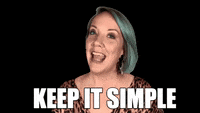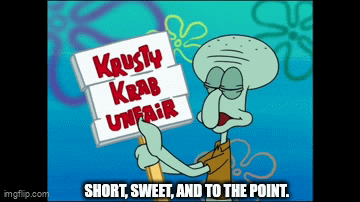#more invented dialog I don't hate...
Explore tagged Tumblr posts
Text

If my departure is any punishment, you are quite right, my character reading is not too brilliant.
#more invented dialog I don't hate...#also I love that olivier is eating grapes in this scene#I imagine Ralph Richardson off screen cheering him on#Laurence Olivier#Greer Garson#p&P40
2 notes
·
View notes
Note
talk about those books!!! <— hungry for recommendations
okay anon :)
the first book i've been reading is "People of the lake" by Richard Leakey. it's a book about paleoanthropology in africa! i am reading a french translation dating from 1980, which was very touchingly renamed "those of lake turkana". it describes the finds and research which was done at the time on ancient hominids.
this book is remarkable in two ways to me: one in that it's genuinely well written, something rare in science books - usually, people very knowledgeable about a specific topic spent their time perfecting knowledge, not writing skills, which typically leads to science lit being hard to read. but in this book, the prose is great, with some parts feeling like you're reading some fantasy novel! i actually had to take a break reading it because it was so delicious of an experience i couldn't bring myself to read it at home or at work where i'd constantly get bothered by people and noises... which is why i turned to reading slop instead. but that'll be detailed later.
the second remarkable part ties to being a book written in the 70s. the thing with science is that new discoveries make it nearly certain something you'll find will be made obsolete a few years later. reading a 50yo science book means...many years of modern knowledge, especially in a field like archeology/paleontology where new discoveries can completly change what we think of a given species. but this book handles what it hypothesizes with such care, grace and humility that it has not aged so far. everything is presented openly as "might have been, might not, but wouldn't be wonderful?" which is such a sweet damn way to approach science to me!
now, the slop.
the second book i've been reading is actually bookS because it's a series! is Moorcock's Elric saga, which i only started reading because all the art of the character (and there's lots of it) was so uniquely wildly horny i wanted to know what the deal what. these are very famous among fantasy nerds as foundational to the genre, but not exactly mainstream.
they are mostly short adventure stories, centered around a same main character, who vary in quality. now, i will be open, i won't exactly call these books good - they are very dated for better and worst, and are not written especially well, and shine to me for their creativity that's wild in some given places as well as a constant atmosphere of irony that makes them (more or less intentionally so) hilarious. these books were written by a true hater. and it shows.
the core of these books is the main character, who stands out because he sucks. he's an overdramatic whiny richkid who's constantly running away from responsabilities and getting into deep trouble that's always more or less his fault, you either like it or you don't - i love it. his central gimmick is that he's afflicted with extremely poor health and carries around this fucked up evil sword that allows him to not wither and die the more he kills people. much dramatic conflict ensues, boohoo. it's interesting to see the sheer impact these books had on fantasy, inspiring a lot of more famous media - if it's got dragons and it's a bit edgy, there's a chance it's related. the books might feel a bit derivative to a modern reader because of this, but with a step taken back it's cool to study. i discovered to my immense pain that it's more or less what invented the modern concept of multiverse. deep sigh
where i'm loving these books is in conjunction to witch hat, because both series are fantasy i enjoy but with glaring flaws that balance each other out. i loved WHA for it's logical worldbuilding and interesting side characters (hello boy of URL) as well as its touching attention to real world issues, i hated WHA for being very meanies vs goodies with forced dialog that felt at best condescending and it's inability to address rougher issues because the manga is too nicies. Elric has the most bullshit fairy recess logic happenings, its offensive in the good old proud pulp way and most side characters could be replaced by cardboard cutouts - but it's not afraid to be weird and ugly, the main character feels as convoluted and complex as a real guy would, and the Hater's Edge (tm) and related strangely subtle dark humor cured me from the salt i was feeling at WHA and its fans inability to read between the lines.
i still have to finish them in the meantime if i fully explain the MC we're gonne be there for hours so here's a collection of silly images ive been collecting with my friends that remind us of him instead. cheers





7 notes
·
View notes
Text
OPINION: Simple =/= Lazy

Whenever something is simple, it's often blanketly seen as lazy or low effort by detractors. Those who are family with my page know that I vehemently hate whenever those terms are used for movies or TV shows. I also think it's wrong to assume anything that's simple is automatically lazy. It's time we're reminded that these are vastly different terms and should not be used interchangeably, less we as a society continue to be misinformed.

We take for granted the many tools, programs, recipes, and instructions that are simple. The keyboard format in which most computers have is simple and easy to figure out. The 5 simple machines (screw, lever, pully, wheel&axel, and wedge) are basic by design. Making a simple bowl of cereal is something so easy even a child can do it. We as people have always made things simple, as far back as the caveman days. It wasn't out of laziness or lack of thought, but rather for the sake of necessity. You know before 911 was invented we had do dial a 7 digit number to call the cops or an ambulance? And this was back in the mid-20th century, where instead of the iPhone we take for granted now, we had the painfully tedious rotary phone. What's worse is if you didn't have the number memorized, you had to rely on the phone book. See how complicated all that is? Making the emergency phone number just 3 digits was so simple, yet so genius. It has saved countless lives and was a big help for police officers responding to crimes in a more timely manner. Simplicity out of necessity is what makes life less difficult than it already is.

While we like our everyday devices to be simple out of necessity, it seems to be a different matter when it comes to our entertainment. A movie or a show being simple is often seen as a negative and one that screenwriters should avoid if they wish to dazzle critics. I'm all for taking risks, taking chances, and getting messy (comment if you got that reference 😉), I don't think it's an inherent bad thing to want to tell a simple story. A story that has a clear beginning, middle, and end, where the characters start their journey at point A and end it at point be, beat the bad guy, and live happily ever after is simple, yes, but lazy? Absolutely not. What I just described to you was something that opens the door to a wide range of different possibilities, where the only limit is your imagination. This basic story structure has had variants that date back to when we told stories via shadow puppets. While the narrative is simple, that doesn't mean it leaves no room for creativity. Case in point, The Super Mario Bros. Movie. Now, I'm not some pretentious dolt who believes critics are wrong for not liking a movie when their opinions are just as valid as my on. The reception to the Super Mario Bros Movie, however, did seem to highlight a common problem with online criticism. This notion that the movie should've taken more risks and be more than just a 92 minute long advertisement for a video game franchise. I understand if a lot of critics were either bored or indifferent with the film as a whole. I can not, however, side with the notion that the movie would've been better if it was more complex. If they were to have made the movie more complex with longer scenes focusing on the characters having their own subplots or if it was about Mario and Luigi struggling financially and trying to earn enough money to pay their mother's medical bills (or something of the sort), it would take away from the other important aspects of storytelling. Aspects such as good pacing, creative world building, engaging characters interactions, clever and organic dialog, strong vocal performances, an impressive score, and dazzling visuals. Again, I understand if most critics were left cold by the film as a whole, but I don't agree with generally concensus that a complex, bold and risky script is inherently better than a straightforward and to the point script.

It's okay if one chooses the simpler option over the challenging one. Simplicity is how we, as people, are able to process information in a concise and fair manner. It's also how we get devices and recipes we take for granted every day. This also applies to the entertainment we consume. Movies and TV shows are supposed to be escapist entertainment that provides the audience with a good time. To conclude, I leave you with a quote from the late great Steve Jobs.

#reblog#share#like#follow#simple#opinion#the super mario bros movie#animation#comedy#critics#online#steve jobs#keep it simple
0 notes